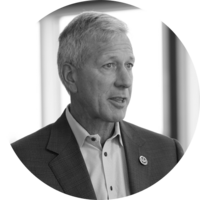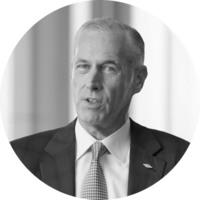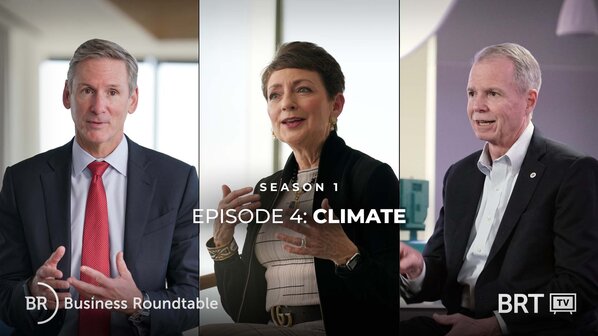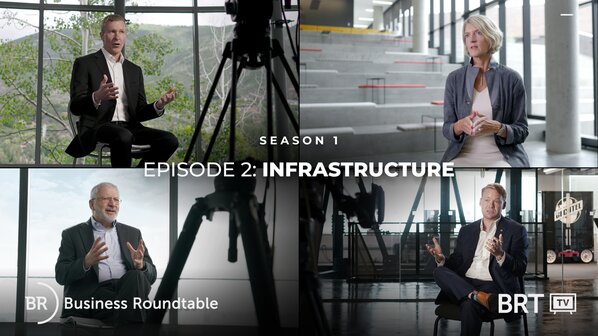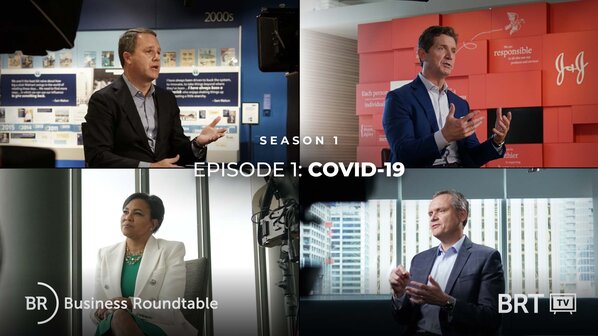Season One, Episode Three:
U.S. Competitiveness
Speakers
- Greg Hayes, Chairman & CEO, Raytheon Technologies Corporation
- Lance Fritz, Chairman, President & CEO, Union Pacific Railroad
- Sonia Syngal, CEO, Gap Inc.
- Jim Fitterling, Chairman & CEO, Dow
DESCRIPTION
In the third episode of BRT TV, the CEOs of Raytheon Technologies Corporation, Union Pacific Railroad, Gap Inc. and Dow explain how tax increases on U.S. businesses would undermine the competitiveness of the U.S. economy, businesses and American workers. Harmful tax increases on job creators will hamstring companies’ ability to invest in R&D, innovate, open new plants and facilities and hire employees. Hear firsthand from business leaders as they detail the multi-faceted impact of tax policy on all stakeholders and encourage policymakers to maintain America’s competitive tax code.
The benefits to a strong, growing economy from a competitive U.S. tax system are in jeopardy. America’s current corporate tax system supports sustainable, long-term economic growth and enable a level playing field for U.S. companies operating globally. Higher taxes on job creators will harm American workers, stifle wage growth and slow economic recovery.
Learn more.
A Business Roundtable survey of its CEO members found that increases in U.S. domestic and international tax rates would have a negative effect on business expansion, hiring and wage growth, investments in research and development and innovation, and U.S. competitiveness in the global economy.
Read the survey findings.
Tax increases will hurt the economy. Prior to the pandemic, the current tax code helped lower the unemployment rate to a 50-year low, boosted wages to the fastest two-year growth in 20 years and increased household incomes. Unraveling these tax policies will make the U.S. less globally competitive and will undermine investments in American workers, families and communities.
Explore the statistics.

